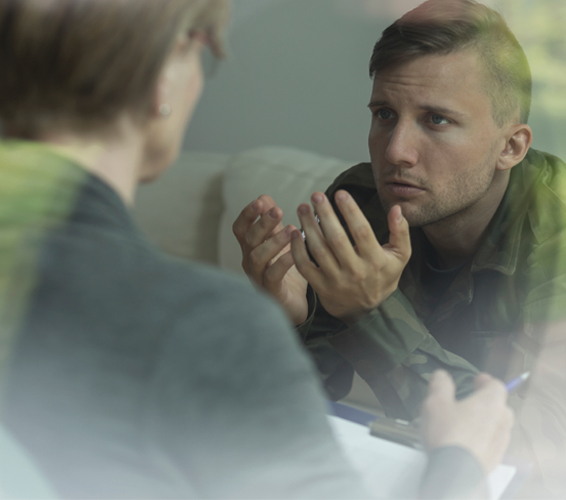As a society, we’ve set high expectations on our members of the military to live and work on the moral high ground. Their code of values and ethics, compiled in the 2003 manual Duty with Honour: The Profession of Arms in Canada, was developed so those serving will “consistently perform their duties to the highest ethical standards.”
They are required to act with dignity, loyalty and courage, to be respectful and obey lawful authority. Society expects them to be the best examples of Canadian values.
What has this to do with veterans’ health? Well, war is a dirty business, and warriors too often are put in situations that shatter their code of ethics, resulting in a moral injury.
Moral injury is recognized by the Canadian Armed Forces as one of four causes of operational stress injuries, along with events that provoke terror, horror or hopelessness, accumulated stress and grief.
Research into moral injury is in its infancy, according to presenters at the Military and Veterans Health Research Forum in Quebec City in November.
“Values regarding right and wrong, evil and good, are at the heart of the military profession,” said Megan Thompson of Defence Research and Development Canada. “[Codes, training, rules of engagement and the chain of command] are not always enough.” They are of little help to those trained to kill the enemy and sworn to protect civilians, when they witness women and children being massacred and are under orders not to intervene or are confronted by a child or a pregnant woman with a grenade.
What about those caught in an ethical no man’s land, ordered to do something they think is immoral or unethical, but obliged to obey orders and respect the chain of command?
Moral injury can destroy deeply held personal beliefs about right and wrong, profoundly damage the ability to trust, make some see evil everywhere or feel hopeless about the human condition. Some develop severe guilt, shame and anxiety. Codes, training and orders don’t help them live with themselves once they get back home. Some commit suicide.
“They are equipped to confront ethical situations on deployment, but less prepared for moral injuries,” said Lieutenant (Navy) Michelle Moore of the Royal Military College of Canada. “Many think because they have been trained to kill, they should be able to handle the aftermath.” This belief prevents them from even seeking help, and hampers their ability to reintegrate into society.
So moral injury is a concern for us all.
Is it possible
to make troops more resilient
to moral injury?
Moral injury is the impact of witnessing or taking part or being victimized by actions that violate an individual’s or the military’s moral code. Syracuse University’s Moral Injury Project gives these examples: causing harm to civilians either accidentally or having no alternative; not providing medical aid to comrades or civilians; hearing of executions of co-operating local nationals; living with knowledge of failure to report a sexual assault or rape; following illegal or immoral orders; and a change in belief about the necessity or justification for war.
“There are real legal and political considerations for the Canadian Armed Forces” regarding research, said Thompson. Answers to questions about events in which personnel witnessed or participated in events involving violations of the code of ethics or the laws of armed conflict could reverberate up the chain of command to senior leaders.
Yet there are many questions only further investigation and research can answer.
First, how prevalent is moral injury? Are some occupations more exposed to it than others, and under what circumstances? Are there some deployment experiences that increase the risk? Are some people more vulnerable, others more resilient, and why?
What is the role of leaders in preventing moral injury? Research shows troops are more vulnerable to moral injury when their leaders let attitudes or behaviours that deviate from the code slide by.
Some traumas that cause post-traumatic stress disorder also cause moral injury, but there is disagreement whether PTSD treatments, which largely address fear and horror, adequately address shame, guilt and the broken sense of self associated with moral injury. While repeatedly recalling the incident helps lessen pain for some PTSD sufferers, it drives it deeper for some with moral injury.
Do mental health programs and treatment need tweaking? Is there special stigma around moral injury? Some believe moral injury is best treated in the family circle and larger community.
Do education and training programs need updating to reflect the ethical questions raised by the complexity of modern military operations? A good beginning could be a discussion about conditions that raise the risk of moral injury.
Is it possible to make troops more resilient to moral injury, or harden them to it? And is that a good thing, since many believe the symptoms of moral injury that prove a person is moral is evidence of empathy.
The nature of modern conflict means “moral complexity and ambiguity are likely to continue and increase,” said Thompson.
So…what are we all going to do about it?
Advertisement















